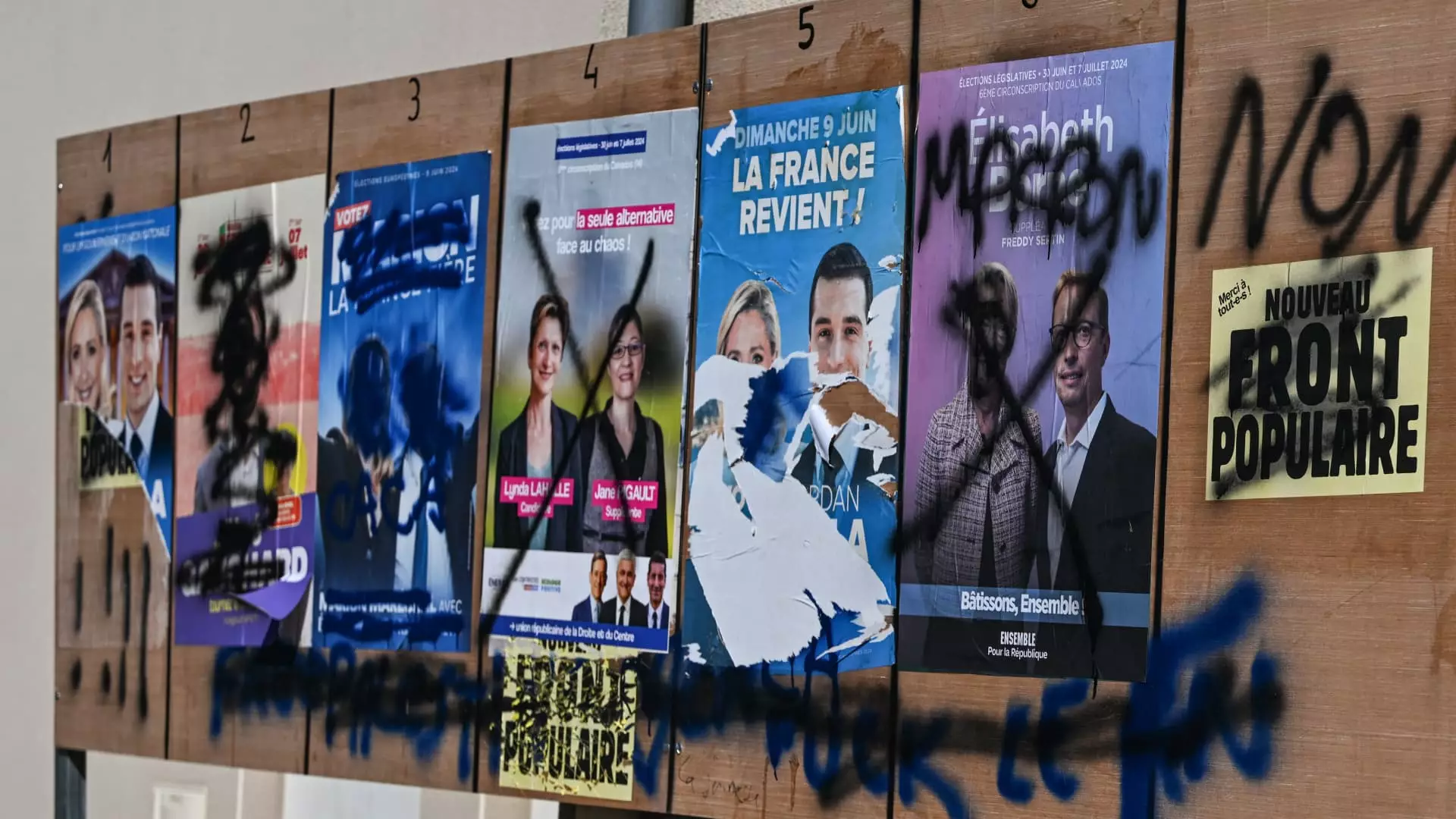French President Emmanuel Macron surprised everyone in early June by calling for a snap parliamentary election after his party suffered a significant loss in the European Parliament elections. This move came in response to the rising popularity of the far-right National Rally group, led by Marine Le Pen and Jordan Bardella. Macron justified the snap election by stating that France needed a clear majority to govern effectively and avoid chaos and disorder in the coming years.
The Poll Predictions
Analysts have been closely monitoring the polling data leading up to the election, with surveys consistently showing National Rally ahead with around 35% of the vote. The leftist New Popular Front bloc follows with 25-26% and Macron’s centrist Together alliance in third place with 19%. Even if a hung parliament seems likely, the strong showing for National Rally puts pressure on Macron to deal with a potentially fractious and unstable government.
The uncertainty surrounding the election has already had an impact on the markets, with French equities underperforming and the France-Germany 10-year yield spread widening. The prospect of a coalition government composed of ideologically opposed parties has raised concerns among economists about how it could affect the stability of the euro zone’s second-largest economy. The need for constant negotiations and consensus-building could lead to regulatory uncertainty and backtracking on policy plans, creating challenges for businesses in France.
With no single party expected to secure an absolute majority in the National Assembly, the likelihood of co-habitation between Macron and a prime minister from National Rally is high. This scenario would see Bardella, the 28-year-old president of National Rally, having a significant influence over domestic and economic policy, while Macron retains control over foreign affairs and defense. The uneasy alliance between the president and the prime minister could lead to a government that struggles to pass legislation and govern effectively.
As the election draws closer, the need for parties to form alliances to achieve a majority in parliament becomes crucial. The potential for a left-wing government coalition, including Macron’s Renaissance party and centrist Republicans, could challenge the dominance of the far-right in French politics. However, the fragmented political landscape in France is likely to result in a period of intense bargaining and negotiation, leading to ongoing political uncertainty and instability.
The snap parliamentary election in France represents a high-stakes gamble for President Macron as he seeks to consolidate his power and prevent a far-right government from taking control. The outcome of the election could have far-reaching consequences for the future of French politics and the stability of the euro zone. As voters head to the polls, the eyes of the world are on France to see how this political drama unfolds.


Leave a Reply